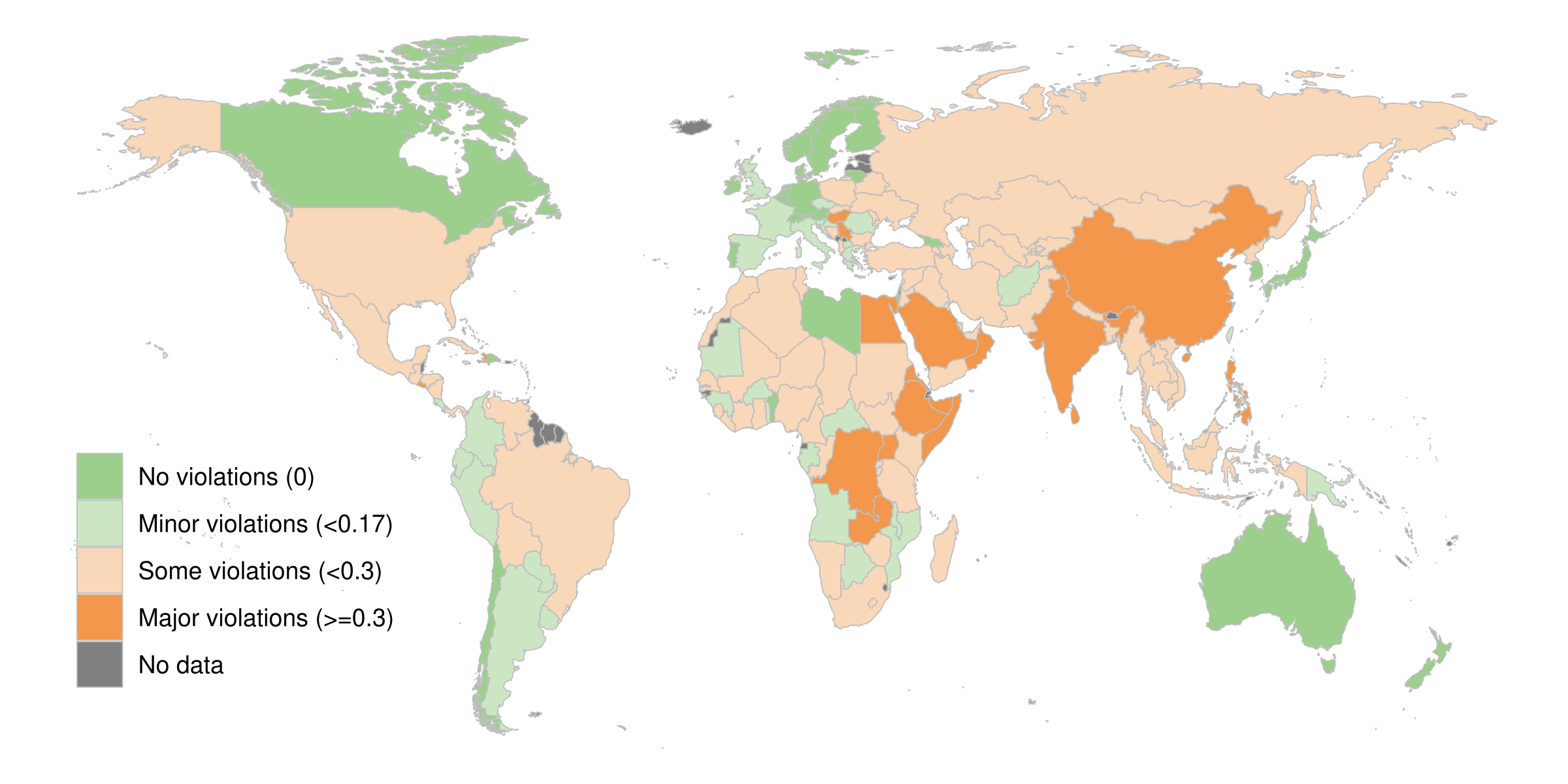International Day of Democracy: Pandemic Challenges
By: Paul Bederke
Sep 14, 2020
Tomorrow’s United Nations International Day of Democracy is overshadowed by the Covid-19 pandemic. The UN is warning that the current measures taken by governments to get the pandemic under control are leading to major social, political and legal challenges; UN Secretary General António Guterres urged for transparency, responsiveness and accountability. Previous research indicates alarming findings. For instance, Anna Lührmann and Bryan Rooney show in V-Dem’s 85th Working Paper that democracies are in general more likely to decline during a declared state of emergency. To assess the extent to which governments violate democratic standards for emergency provisions in response to the Covid-19 pandemic, the V-Dem Institute has started the Pandemic Backsliding Project (PanDem). V-Dem's latest policy brief reports, among other things, that 89 countries experience concerning developments.
In today’s Graph of the Week, we look at the interactive online dashboard of the Pandemic Backsliding Project. The Pandemic Backsliding Project bases its coding primarily upon data collected by a team of trained research assistants. The sources are documented at GitHub and include mainly official government sources, academic databases, trusted inter-governmental, state or independent organizations and trusted media outlets. Six types of violations of democratic standards can be distinguished: (1) Not time limit on emergency measures, (2) discriminatory measures, (3) derogations from non-derogable rights, (4) restrictions on media freedom, (5) disproportionate limitations on the role of the legislature and (6) abusive enforcement. In addition, official disinformation campaigns on Covid-19 are also included. Further information about these types of violations can be found in the policy brief and the codebook.
As the map below shows, most Western European countries have - so far - managed the pandemic with no or only minor violations of democratic standards. With few exceptions, the situation differs in Eastern Europe and Asia, where even major violations are reported. In particular, the responses of India and Sri Lanka are alarming, as both countries are at high risk of democratic erosion during the pandemic. Meanwhile, Japan and South Korea managed not to infringe on democratic standards. The African countries have taken varying measures: countries like Benin and Botswana have rarely violated democratic standards, while countries like Uganda have shown serious violations. On the American continent, the largest countries Brazil and the USA stand out with some violations. To give an example, the Brazilian government removed data about COVID-19 from its websites thus limiting the access to information. In Central America, El Salvador and Haiti severely violate democratic standards by restricting media freedom, limiting the legislature by ruling by decree and, in case of El Salvador, violating non-derogable rights. The specific violations, coding decisions and sources for each country is available in the GitHub repository.
To learn more about the Pandemic Backsliding Project, visit v-dem.net.


